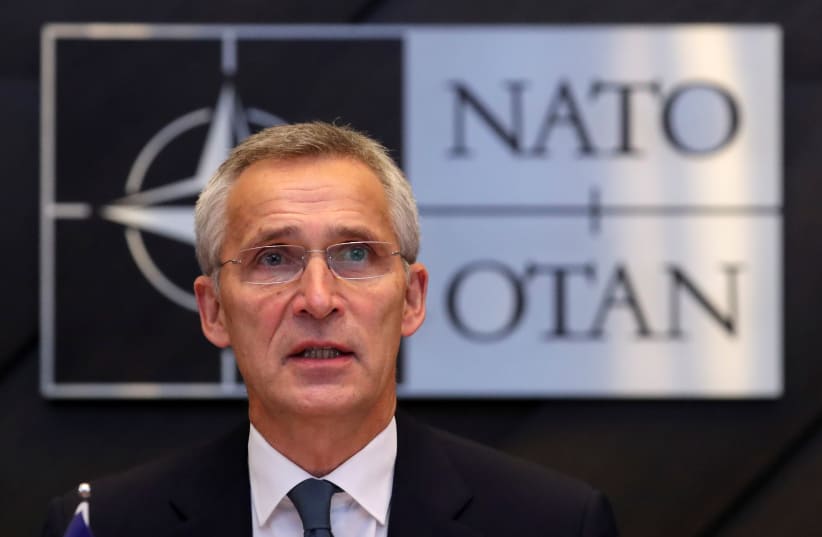NATO made a show of force to Russia this week with a meeting of members in Riga.NATO foreign ministers rarely meet outside Brussels; they usually meet at the alliance's secure headquarters. When they traveled to Riga, the capital of Latvia, from 30 member countries, it was primarily to send a message toward Moscow: that the Western alliance has a united presence on its eastern border.
"Russia wants Ukraine to remain weak," Foreign Minister Dmytro Kuleba told Reuters news agency ahead of talks with colleagues from 30 NATO countries on Wednesday. "We will call on allies to work with Ukraine on a deterrence package consisting of three layers," he said. NATO Secretary-General Jens Stoltenberg said that "Russia needs to be transparent, and they need to reduce tensions, and de-escalate."
The first layer, he continued, consists of clearly communicating to Russia the consequences of aggressive actions against Ukraine. Second, he said, there should be a package of economic sanctions that would be imposed on Russia in the worst case, and third, even stronger cooperation between NATO and Ukraine in the military and defense fields.
The background to Kuleba's appeal is intelligence from NATO and Ukraine that Russia has again deployed unusually large contingents of combat-ready troops, as well as heavy weapons and drones, on its border with Ukraine. Ukraine now estimates the number of Russian troops on the border at 115,000. The developments bring back memories of 2014, when Russia annexed the Crimean peninsula.
Asked by reporters whether his country also expected additional arms deliveries, he replied, "So helping Ukraine strengthen its defense capabilities also means deterring Russia."
Germany and the U.S. have warned Russia against attacking Ukraine ahead of the start of the talks. "Russia would have to pay a high price for any form of aggression," said acting German Foreign Minister Heiko Maas. U.S. Secretary of State Antony Blinken added that "any new aggression would bring serious consequences."
Blinken will meet with his Russian counterpart Sergei Lavrov on Thursday on the sidelines of the Organization for Security and Cooperation in Europe (OSCE) summit in Stockholm, Reuters reports. It is not yet known whether the meeting between the two foreign ministers will take place because of Russia's troop buildup.
During the NATO talks, Ukrainian President Volodymyr Zelenskiy pleaded for direct contact with Moscow to end the war in the eastern Donbass region. Ukrainian troops are fighting Russian-backed units there. "We have to tell the truth that we will not be able to end the war without direct negotiations with Russia, and this has already been recognized today by all external partners," Zelenskiy said according to Reuters.
